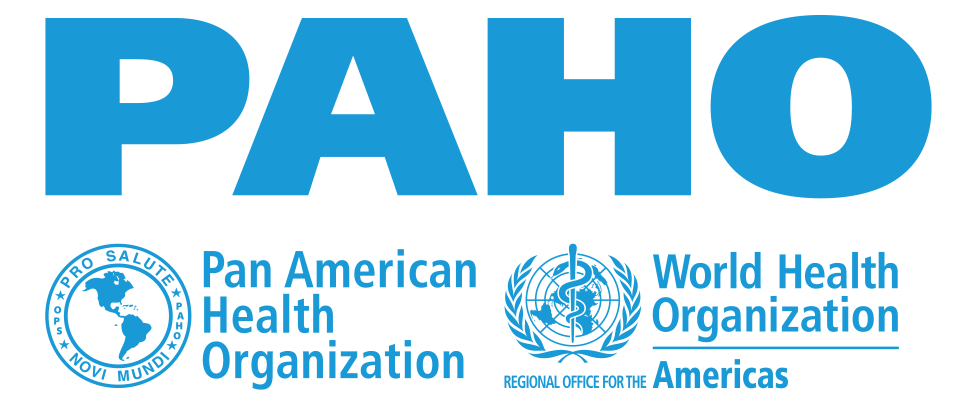-
GeneralGeneral
-
Public Health Leadership Homepage
This course on Public Health Leadership provides comprehensive skill sets and knowledge related to health leadership. Participants will learn about the theoretical foundations of public health leadership and apply their knowledge in meaningful, real-world learning activities. All components of this training are free, including registration, learning, testing, and a certificate of completion.
The Public Health Leadership course was developed in partnership with PAHO/WHO. This course is co-sponsored by the University of the Incarnate Word. Like all NextGenU courses, it is competency-based, using competencies from the Council on Linkages between Academia and Public Health Practice, AACN MSN Essentials, Core Competencies for Public Health in Canada, ASPPH: MPH Core Competency Model, CEPH, and WHO-ASPHER Public Health Competencies. This course uses learning resources from world-class academic and governmental organizations such as National Center for Biotechnology Information, the U.S. Centers for Disease Control and Prevention, the European Centre for Disease Prevention and Control, and Cambridge University Press. The course developers are Professor Dick Heller, MB BS MD FRCP FFPH FRACP FAFPHM; Hugo Andres Rojas Aldieri MD, MSc; Theresa Jones, PhD, MSN, BSN, AASN, RN-BC; Juan Ernesto Bravo Coria, MD; Pablo Baldiviezo Rodriguez, MD; Sergio Arancibia, MD; Valeria Reynolds, MD, MPH.


For publications on NextGenU.org’s courses’ efficacy, see “A Novel Integration of Online and Flipped Classroom Instructional Models in Public Health Higher Education,” (2014), BMC Medical Education, “Building Public Health Capacity through Online Global Learning,” (2018), Open Praxis, or here on NextGenU.org’s publication page. Subscribe to our newsletter to be notified of future updates, new courses, and to be part of our community.
There are seven modules to complete, which provide:
- An introduction to fundamental concepts of Leadership in public health.
- A context about the health systems.
- Fundamental knowledge about ethics in public health.
- Development of capacity and abilities in leadership.
- Develop skills in teamwork and organizational performance.
- Develop a plan and implementation of programs in the community.
- The skills necessary for advocacy and communication.
The completion time for this course is estimated at 134 hours and 30 minutes, 31 hours and 15 minutes of didactics through narratives and curated resources, 31 more hours and 15 minutes are estimated to internalize and assimilate knowledge, and 72 hours of work participating in activities quizzes to assist the student in the synthesis of the materials. This course is equivalent to 3 credit hours.
The course requires completion of all case studies and peer activities. At the end of each lesson, there is a practice quiz. At the end of the course, after you’ve completed each lesson, quiz, and activity, you’ll have access to a final exam, and a chance to evaluate this course. Once you’ve passed that last test, you will be able to download a certificate of completion from NextGenU.org and our course’s co-sponsoring organizations (listed above). We keep all of your personal information confidential, never sell any of your information, and only use anonymized data for research purposes, and we are also happy to report your testing information and share your work with anyone (your school, employer, etc.) at your request.
Engaging with this Course:
You may browse this course for free to learn for your personal enrichment; there are no requirements. To register in this course, it is required that learners have obtained a college-level/bachelor's degree.
To obtain a certificate a learner must successfully complete
- all the reading requirements,
- all quizzes and pass with a 70% with unlimited attempts,
- all case studies,
- the peer activities,
- the final exam with a minimum of 70% and a maximum of 3 attempts, and
- the self and course evaluation forms.
To obtain credit
- complete all requirements listed above for the certificate, and
- your learning institution or workplace should approve the partner-university-sponsored NextGenU.org course for educational credit, as they would for their learner taking a course anywhere.
NextGenU.org is happy to provide your institution with
- a link to and description of the course training, so they can see all its components, including the cosponsoring universities and other professional organization cosponsors;
- your grade on the final exam;
- your work products (e.g. case study activities), and any other required or optional shared materials that you produce and authorize to share with them;
- your evaluations -- course, and self-assessments;
- a copy of your certificate of completion, with the co-sponsoring universities and other organizations listed.
To obtain a degree, NextGenU.org co-sponsors degree programs with institutional partners. To obtain a full degree co-sponsored with NextGenU.org, registrants must be enrolled in a degree program as a student of a NextGenU.org institutional partner. If you think that your institution might be interested in offering a degree with NextGenU.org contact us.
We hope that you will find this a rewarding learning experience, and we count on your assessment and feedback to help us improve this training for future students.
Here are the next steps to take the course for credit.
- Complete the registration form.
- Take the pre-test.
- Begin the course with Module 1: Introduction to Public Health Leadership. In each lesson, read the description, complete all required readings and any required activity, and take the corresponding quizzes.
-
Module 1: Introduction to Leadership in Public Health
Competencies covered in this module:

- Describe public health as part of a larger inter-related system of organizations that influence the health of populations at local, national, and global levels.
- Explain the ways public health, health care, and other organizations can work together or individually to impact the health of a community.
- Advocate for the role of public health in providing population health services.
-
Module 1: Lesson 1: Public Health as Part of a Complex System
Learning Objectives:
- Remember significant advances in Public Health's history.
- Understand the influence of different stakeholders and organizations in Public Health at a local, national, and global level.
- Understand the role of public health as part of a complex system in the health of populations.
6 URLs -
Module 1: Lesson 2: Leading Collaboration to Improve Health
Learning Objectives:
- Understand different types of partnerships and their implications for the public health system.
- Analyze why and how collaboration was a requirement to achieve some of the biggest public health achievements.
7 URLs, 1 Forum - Understand different types of partnerships and their implications for the public health system.
-
Module 1: Lesson 3: The Importance of Public Health Leadership in Public Health
Learning Objectives:
- Describe the concepts of leadership and management.
- Identify leadership, management, and change theories.
- Analyze leadership and management strategies of successful public health leaders.
6 URLs, 1 Forum - Describe the concepts of leadership and management.
-
Module 2: Ethics
Competencies covered in this module:

- Incorporate ethical standards of practice (e.g. Public Health Code of Ethics) into all interactions with individuals, organizations, and communities.
- Utilize public health ethics to manage self, others, information, and resources.
- Demonstrate transparency, integrity, and honesty in all actions.
- Apply social justice and human rights principles when addressing community needs.
- Incorporate ethical standards of practice (e.g. Public Health Code of Ethics) into all interactions with individuals, organizations, and communities.
-
Module 2: Lesson 1: Leadership, Ethics, and Public Health
Learning Objectives:
- Understand the concepts of transparency, integrity, and honesty.
- Describe the relationship between leadership and ethics.
- Summarize the Public Health code of Ethics
- Analyze how the public health code of ethics can be applied to public health leadership.
- Demonstrate the capacity to incorporate the public health code of ethics in interactions with individuals, organizations, and communities.
- Apply social justice and human rights principles when addressing community needs.
11 URLs, 2 Forums, 1 Quiz - Understand the concepts of transparency, integrity, and honesty.
-
Module 3: Leadership and Systems Thinking
Competencies covered in this module:

- Develop an understanding of how healthcare delivery systems are organized and financed (and how this affects patient care) and identify the economic, legal, and political factors that influence health care.
- Demonstrate the ability to use complexity science and systems theory in the design, delivery, and evaluation of health care.
- Understand the principles of systems thinking and apply them within systematic inquiry to analyze, model, and improve public health organizations and services at different strategic levels.
- Develop an understanding of how healthcare delivery systems are organized and financed (and how this affects patient care) and identify the economic, legal, and political factors that influence health care.
-
Module 3: Lesson 1: Systems Theory, Leadership, and Healthcare
Learning Objectives:
- Understand the influence of economic, legal, and political factors in healthcare.
- Apply complexity science and systems theory in the design, delivery, and evaluation of health care.
8 URLs, 3 Forums, 1 Quiz, 1 Assignment -
Module 4: Capacity Development
Competencies covered in this module:

- Describe the attributes of leadership in public health.
- Demonstrate emotional intelligence with an awareness of how one’s own beliefs, values, and behaviours affect one’s own decision-making and the reactions of others.
- Demonstrate practicality, flexibility, and adaptability in the process of working with others, emphasizing achieving goals as opposed to rigidly adhering to traditional and commonly used work methods.
- Catalyse change (behavioural and/or cultural) in the organization, communities and/or individuals.
- Provide opportunities for professional development for individuals and teams (e.g., training, mentoring, peer advising, coaching)
- Contribute to team and organizational learning in order to advance public health goals.
- Ensure the use of professional development opportunities by individuals and teams.
- Facilitate the development of others as leaders.
- Describe the attributes of leadership in public health.
-
Module 4: Lesson 1: Leadership Qualities
Learning Objectives:
- Understand the attributes of leadership in public health.
- Apply emotional intelligence to identify how one's own beliefs, values, and behaviors affect one's decision-making and others' reactions.
- Apply practicality, flexibility, and adaptability while working with others and emphasize achieving goals over adhering to traditional methods.
- Demonstrate the ability to catalyze change in your relationships, organization, or communities.
8 URLs, 1 Forum - Understand the attributes of leadership in public health.
-
Module 4: Lesson 2: Promoting Professional Development
Learning Objectives:
- Understand the process of workforce planning.
- Analyze team members to identify opportunities for professional development.
- Understand the importance of competencies for human resources development and considerations for their implementation.
- Describe good practices to arrange and follow up professional development opportunities of team members.
- Apply strategies to promote leadership in their home, workplace, or community.
8 URLs -
Module 4: Lesson 3: Local Challenges and Perspectives on Human Resources Development
Learning Objectives:
- Identify local barriers to human resources development.
- Recognize opportunities to overcome local barriers to human resources development.
2 URLs - Identify local barriers to human resources development.
-
Module 4: Lesson 4: Human Resource Policies, Planning, and Management
Learning Objectives:
- Recognize the role of policies in the development of human resources.
- Describe strategies for planning and implementation of human resources development policies.
3 URLs, 1 Quiz -
Module 5: Teamwork and Organizational Performance
 Competencies covered in this module
Competencies covered in this module- Demonstrate team building, negotiation, and conflict management skills.
- Develop strategies to motivate others for collaborative problem solving, decision-making, and evaluation.
- Inspire and motivate others to work towards a shared vision, program, and/or organizational goals.
- Clearly identify and support the roles and responsibilities of all team members, including external stakeholders.
- Effectively lead interdisciplinary teams to work in a coordinated manner in various areas of public health practice.
- Use collaborative methods for achieving organizational and community health goals.
- Describe alternative strategies for collaboration and partnership among organizations, focused on public health goals.
- Modify organizational practices in consideration of changes (e.g. social, political, economic, scientific).
- Contribute to the continuous improvement of individual, program, and organizational performance (e.g. mentoring, monitoring progress, adjusting programs to achieve better results)
- Contribute to maintaining organizational performance standards.
-
Module 5: Lesson 1: Teamwork Within Organizations
Learning Objectives:
- Apply team building, negotiation, and conflict management skills.
- Create a strategy to motivate others for collaborative problem solving, decision-making, and evaluation.
- Apply leadership skills to identify and support the roles and responsibilities of team members.
- Understand strategies for collaboration and partnerships among organizations focused on public health goals.
9 URLs, 1 Forum -
Module 5: Lesson 2: Analysis and Optimization of Organizational Practices
Learning Objectives:
- Understand the concept of organizational practices.
- Understand strategies for organizational change.
- Create a strategy to adapt organizational practices to social, political, economic, scientific, or other influential changes.
2 URLs, 1 Forum - Understand the concept of organizational practices.
-
Module 5: Lesson 3: Leading Organizational Performance Improvement
Learning Objectives:
- Understand the concept of organizational performance.
- Analyze the concept of innovation, and its importance in health.
- Analyze the process of organizational performance improvement.
- Create a plan to improve organizational performance in their workplace.
5 URLs, 2 Forums, 1 Quiz - Understand the concept of organizational performance.
-
Module 6: Planning and Implementing Public Health Programs in the Community
 Competencies covered in this module
Competencies covered in this module- Collaborate with individuals and organizations in developing a vision for a healthy community (e.g. emphasis on prevention, health equity for all, excellence, and innovation).
- Contribute to developing key values and a shared vision in planning and implementing public health programs and policies in the community.
- Articulate an achievable mission, set of core values, and vision.
- Describe the mission and priorities of the public health organization where one works, and apply them in practice.
- Apply business and economic principles and practices, including budgeting, cost/benefit analysis, and marketing, to develop a business plan.
- Design and implement systems change strategies that improve the care environment.
- Participate in the design and implementation of new models of care delivery and coordination.
- Engage in dialogue and learning from others to advance public health goals.
- Assume a leadership role in effectively implementing patient safety and quality improvement initiatives within the context of the interprofessional team using effective communication (scholarly writing, speaking, and group interaction) skills.
-
Module 6: Lesson 1: Public Health Programs Planning: Developing a Vision for a Healthy Community
Learning objectives:
- Recognize the importance of leading the development of a shared vision for a healthy community.
- Demonstrate the ability to articulate an achievable mission, set of core values, and vision.
- Describe the importance of sharing a vision to improve collaboration.
- Analyze the mission and priorities of the organization at one's workplace.
- Create a public health business plan while considering business and economic principles and practices (e.g. budgeting, cost/benefit analysis, and marketing).
6 URLs - Recognize the importance of leading the development of a shared vision for a healthy community.
-
Module 6: Lesson 2: Leading the Implementation of Public Health Programs
Learning objectives:
- Analyze the process of planning and implementing public health programs and policies in the community.
- Analyze interprofessional collaboration strategies to advance public health goals.
- Engage in dialogue to design a system change strategy to improve the care delivery and develop a plan to implement it.
4 URLs, 1 Forum -
Module 6: Lesson 3: The Essential Public Health Functions
Learning objectives:
- Understand the essential public health functions and services.
- Analyze the essential public health functions and services.
- Analyze the importance of leadership principles to improve the delivery of essential public health functions and services.
- Understand the facilitators and barriers that may affect the delivery of the 10 Essential Public Health Services
3 URLs, 1 Forum - Understand the essential public health functions and services.
-
Module 6: Lesson 4: Leading the Management of Health Emergencies and Disasters
Learning objectives:
- Understand concepts related to health emergency and health disaster.
- Describe the role of the public health leader and the public health system when a health emergency or disaster occurs.
- Analyze the importance of public health leadership in a health emergency or disaster context.
9 URLs, 1 Forum, 1 Quiz -
Module 7: Advocacy and Communication
 Competencies covered in this module:
Competencies covered in this module:- Advocate for the role of public health in providing population health services.
- Demonstrate an ability to build community capacity by sharing knowledge, tools, expertise, and experience.
- Advocate for the role of public health in providing population health services.
-
Module 7: Lesson 1: Public Health Advocacy
Learning Objectives:
- Apply leadership and communication skills to advocate for the role of public health in providing population health services.
3 URLs, 2 Forums -
Module 7: Lesson 2: Health Communication and Education
Learning Objectives:
- Apply leadership and communication skills to build community capacity.
5 URLs, 1 Forum, 1 Quiz - Apply leadership and communication skills to build community capacity.
-
Course and Self Evaluation & Certificate
 In this section, you can provide feedback about this course to help us make NextGenU.org better. Once evaluations are completed, you will be able to download your certificate of completion.
In this section, you can provide feedback about this course to help us make NextGenU.org better. Once evaluations are completed, you will be able to download your certificate of completion.
Public Health Leadership
Register for this course to access the discussion forums



 Click here to start the Final Examination
Click here to start the Final Examination